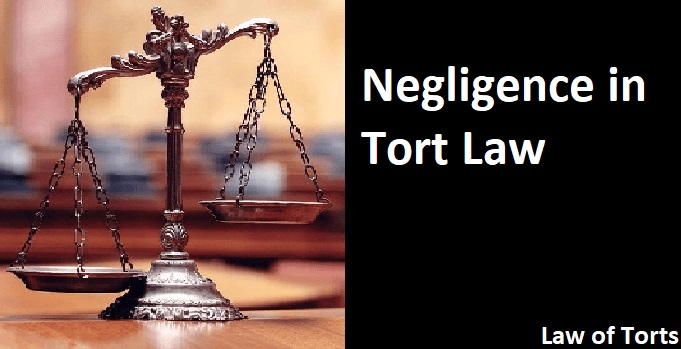In an action for negligence, the plaintiff has to prove the following essentials of negligence :
- That the defendant owed duty of care to the plaintiff;
- The defendant made a breach of that duty;
- The plaintiff suffered damage as a consequence thereof.
Duty of care to the plaintiff
It means a legal duty rather than a mere moral, religious or social duty. The plaintiff has to establish that the defendant owed to him a specific legal duty to take care, of which he has made a breach. There is no general rule of law defining such duty. It depends in each case whether a duty exists. In Donoghue V. Stevenson, Lord Atkin said, “It is remarkable, how difficult it is to find in the English authorities statements of general application defining the relations between parties that give rise to the duty.
The courts are concerned with the actual relations which come before them in actual litigation, and it is sufficient to say whether the duty exists in those circumstances. The result is that the courts have been engaged upon an elaborate classification of duties as they exist in respect of property, whether real or personal, with further divisions as to ownership, occupation or control and distinctions based on the particular relations of the one side or the other, whether manufacturer, salesman or landlord, customer, tenant, stranger, and so on. In this way, it can be ascertained at any time whether the law recognizes a duty, but only where the case can be referred to some particular species which has been examined and classified.
The duty to take care arises out of various relations, which it may not be possible to enumerate exhaustively and the courts recognize new duties when they think that to be just. It has been stated by Lord Macmillan that “the categories of essentials of negligence are never closed.”
Lord Atkin propounded the following rule in Donoghue v. Stevenson and the same has gained acceptance “You must take reasonable care to avoid acts or omissions which you can reasonably foresee would be likely to injure your neighbour.”
He then defined “neighbours” as “persons so closely and directly affected by my act that I ought reasonably to have them in contemplation as being so affected when I am directing my mind to the acts or omissions which are called in question.”
In Donoghue V. Stevenson,’ A purchased a bottle of ginger beer from a retailer for the appellant, a lady friend. Some of the contents were poured in a tumbler and she consumed the same. When the remaining contents of the bottle were poured into her tumbler, the decomposed body of a snail floated out with her ginger beer. The appellant alleged that she seriously suffered in her health in consequence of having drunk a part of the contaminated contents essentials of negligence.
The bottle was of dark opaque glass and closed with a metal cap, so that the contents could not be ascertained by inspection. She brought an action against the manufacturer for damage.
One of the defences pleaded by the defendants was that he did not owe any duty of care towards the plaintiff. The House of Lords held that the manufacturer owed her a duty to take care that the bottle did not contain any noxious matter, and that he would be liable on the breach of the duty.
According to Lord Atkin : “A manufacturer of products, which he sells in such a form as to show that he intends them to reach the ultimate consumer in the form in which they left him with no reasonable possibility of intermediate examination and with the knowledge that the absence of reasonable care in the preparation or putting up of the products will result in an injury to the consumer’s life or property, owes a duty to the consumer to take that reasonable care.”
Duty depends on reasonable foreseeability of injury
Whether the defendant owes a duty to the plaintiff or not depends on reasonable foreseeability of the injury to the plaintiff. If at the time of the act or omission, the defendant could reasonably foresee injury to the plaintiff, he owes a duty to prevent that injury and failure to do that makes him liable.






